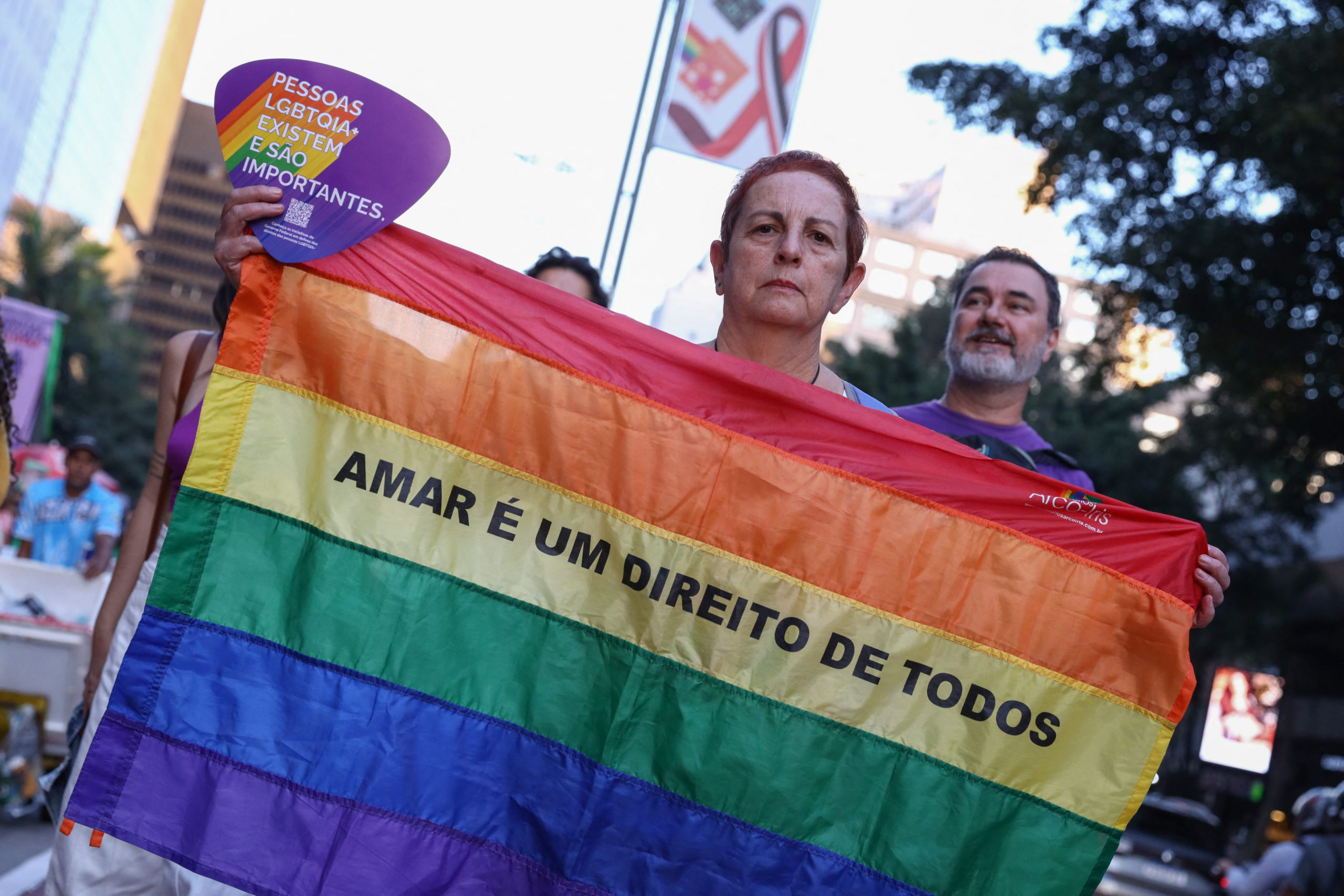International Day against Homophobia, Transphobia and Biphobia: a landmark in the fight for human rights
Despite institutional advancements, combating violence remains a challenge for the LGBTI+ population
 The 21st Walk of Lesbian and Bisexual Women in São Paulo colored Avenida Paulista, in the central region of the city, this Saturday, the 10th. The event took place on the eve of the LGBT+ Pride Parade. (Photo by Marina Uezima / BRAZIL PHOTO PRESS / Brazil Photo Press via AFP)
The 21st Walk of Lesbian and Bisexual Women in São Paulo colored Avenida Paulista, in the central region of the city, this Saturday, the 10th. The event took place on the eve of the LGBT+ Pride Parade. (Photo by Marina Uezima / BRAZIL PHOTO PRESS / Brazil Photo Press via AFP)
The International Day Against Homophobia, Transphobia, and Biphobia, celebrated annually on May 17th, highlights the advancements and challenges in the fight for equality and rights for the LGBTI+ population. This date commemorates a historic event: in 1990, the World Health Organization (WHO) removed homosexuality from the International Classification of Diseases (ICD), recognising that sexual orientation is neither a disease nor a mental disorder. It was only in 2019 that the trans population saw a similar recognition regarding gender identity, when the WHO removed transsexuality from the list of mental disorders.
“In the last ten years, we have experienced a series of affirmations of rights, mainly arising from public policies of the executive and the Supreme Federal Court (STF). From a formal standpoint, we have achieved the main rights of the LGBTQIA+ community,” says Renan Quinalha, a researcher and law professor at Unifesp (Federal University of São Paulo), in an interview with Conectas in 2021. “The problem is that, from a material standpoint, in practice, and in terms of effectiveness, there is still a long way to go. This is because rights depend on being widespread to be realised throughout the national territory.”
High levels of violence
In 2019, the Brazilian Supreme Federal Court (STF) decided that homophobic and transphobic behaviours would come under the classification of the Racism Law, until the National Congress approves a specific law on the matter. In 2023, the Supreme Court equated offences against LGBTI+ people with the crime of racial slander.
Read more
These and other judicial decisions represent an attempt to expand the citizenship of people with sexualities and gender identities that diverge from the norm, but they still do not guarantee a society without violence. In 2023, Brazil recorded 230 deaths of LGBTI+ people, according to a report published this week by the Observatory of LGBTI+ Deaths and Violence in Brazil. Of the dead, 142 were trans people, particularly trans women and travestis. Additionally, 59 gay men were killed. Of the total victims, 80 were black or brown, 70 were white, and one was Indigenous.
Also last year, the Disque 100 hotline registered 4,482 reports of human rights violations against trans people. This reporting service is maintained by the Ministry of Human Rights and Citizenship (MDHC).
The worldwide situation
Worldwide, at least 60 member countries of the United Nations criminalise LGBTQIA+ people in some way, according to the International Lesbian and Gay Association (ILGA). The association also highlights that the legality of consensual same-gender sexual acts cannot be interpreted as evidence of a safer living environment for people with diverse sexual orientations or gender identities or expressions. “In many of the states where such acts are legal, the social stigmatisation of people perceived as non-heterosexual or non-cisgender remains alarmingly high.”
In an interview with Conectas in June 2023, Bruna Benevides, Secretary of Political Articulation of the National Association of Travestis and Transsexuals (Antra), stated, “The more we can raise visibility and advocate by talking about violent deaths and the living deaths, including erasures, the more we have the possibility of creating empathy, so that people can be moved and become individuals who will act in defence of our lives, even before defending our rights.”






